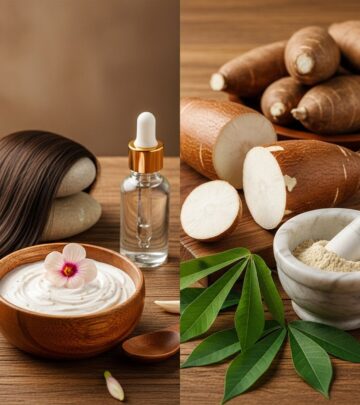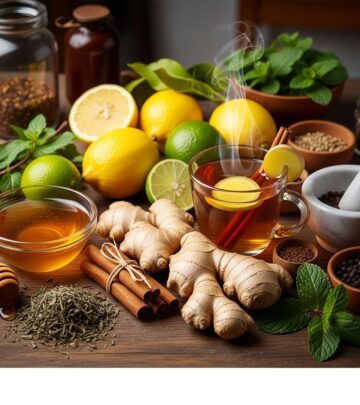14 Effective Home Remedies for Cough: Natural Relief and Prevention
Discover proven natural remedies to soothe coughs and boost respiratory health for people of all ages.

Introduction
Coughing is a protective reflex that helps clear irritants and mucus from the throat and airways, but persistent coughing can disrupt daily life and sleep. Whether caused by common colds, allergies, or minor infections, finding safe and effective relief is crucial. Rather than immediately reaching for medication, you may consider various natural home remedies for cough that have stood the test of time. These remedies offer soothing comfort, help reduce throat irritation, and support your body’s immune response to underlying causes of cough.
14 Effective Home Remedies for Cough
Here are fourteen widely recommended natural remedies for cough. Each method is supported by tradition and scientific research, making them excellent options to try at home.
1. Honey and Warm Water
- Honey possesses natural antimicrobial and soothing properties that help reduce throat inflammation.
- Mix a spoonful of honey in a cup of warm water or herbal tea and sip slowly to relieve cough and ease irritation.
- Swallowing a spoonful of honey directly can also offer rapid relief for dry, persistent coughs.
Note: Honey should not be given to children under one year old due to the risk of infant botulism.
2. Ginger Tea
- Ginger contains compounds with anti-inflammatory and antimicrobial actions that relax the airways and lower mucus production.
- Boil fresh ginger slices in water for several minutes, strain, and enjoy the tea warm. Add lemon and honey for enhanced benefits.
- Chewing fresh ginger or sprinkling salt on raw ginger also helps alleviate cough and congestion.
3. Turmeric Milk
- Turmeric boasts potent antibacterial and anti-inflammatory properties.
- Add a pinch of turmeric powder to a glass of warm milk and drink before bedtime to soothe the throat and encourage restful sleep.
- Enhance efficacy by adding a pinch of black pepper, which improves turmeric absorption.
4. Saltwater Gargle
- Gargling with warm salt water helps reduce sore throat, break up mucus, and minimize bacterial growth.
- Mix half a teaspoon of salt in a glass of warm water. Gargle for 30 seconds, then spit it out. Repeat several times daily for best effects.
5. Steam Inhalation
- Inhaling steam helps loosen thick mucus and relieves congested airways.
- Add a few drops of eucalyptus or peppermint essential oil to a bowl of hot water, cover your head with a towel, and breathe deeply for 5–10 minutes.
- Steam also soothes dryness and irritation caused by cold air or pollutants.
6. Lemon and Honey Mixture
- Lemon is rich in vitamin C and antioxidants that boost immunity, while honey soothes the throat.
- Mix fresh lemon juice with honey. Take small doses throughout the day to minimize throat irritation and support healing.
7. Garlic
- Garlic contains allicin, a compound with antibacterial and immune-boosting properties.
- Add crushed garlic to soups or consume raw for relief from cough and cold symptoms.
- Regular garlic intake may help prevent recurrent respiratory infections.
8. Black Pepper and Honey
- Black pepper’s heat stimulates mucus movement and improves circulation, aiding cough relief.
- Combine a teaspoon of honey with a pinch of black pepper. Swallow slowly to soothe the throat and promote clearance of phlegm.
9. Thyme Tea
- Thyme contains flavonoids and essential oils with expectorant and muscle-relaxing actions for respiratory comfort.
- Boil thyme leaves in water, strain, and drink as tea to relax throat muscles, decrease cough frequency, and reduce inflammation.
10. Pineapple Juice
- Pineapple contains bromelain, an enzyme that breaks down mucus and reduces throat soreness.
- Drink fresh pineapple juice to help clear congestion and support natural reduction in coughing.
11. Clove and Honey
- Clove’s antimicrobial effects can help prevent infections and soothe dry coughs.
- Suck on a whole clove, or mix clove powder with honey for rapid throat relief and cough suppression.
12. Tulsi Tea
- Tulsi (Holy Basil) is a revered herb in Ayurveda with proven benefits for treating respiratory conditions.
- Boil tulsi leaves in water, strain, and sip the tea warm to relieve cough, facilitate mucus clearance, and soothe inflammation.
13. Warm Soups and Broths
- Warm broths, especially chicken or mixed vegetable soup, help relax the throat, hydrate the body, and provide comfort during cough episodes.
- Soups also help replenish fluids lost due to fever or coughing.
14. Stay Hydrated
- Keeping well-hydrated with herbal teas, warm water, and fresh juices thins mucus, facilitates throat clearing, and reduces cough severity.
- Aim to drink several glasses of fluids daily to speed recovery and avoid dehydration.
Comparative Table: Key Home Remedies for Cough
| Remedy | Main Benefit | Usage |
|---|---|---|
| Honey | Soothes throat, antimicrobial | Warm water, tea, or plain |
| Ginger | Reduces inflammation, relieves congestion | Tea, chewed raw, with lemon/honey |
| Turmeric | Antibacterial, anti-inflammatory | In milk, with pepper, or honey |
| Thyme | Expectorant, relaxes throat muscles | Steeped in tea |
| Steam Inhalation | Relieves congestion, loosens mucus | Inhale steam, with or without essential oils |
Best Practices & Important Tips for Home Cough Remedies
- Always use fresh ingredients for remedies to ensure maximum efficacy.
- If cough persists longer than two weeks, or if you notice blood in the sputum, high fever, or chest pain, seek medical advice promptly.
- Children, the elderly, and pregnant women should consult healthcare providers before starting new remedies.
- Avoid honey for infants under one year due to the risk of botulism.
- Practice good hygiene and wash hands regularly to prevent infections that cause coughs.
Frequently Asked Questions (FAQs)
Q1: Are home remedies safe for children?
Many home remedies, such as warm fluids and soups, are safe for older children. However, honey should not be given to babies under one year due to the risk of botulism. Consult a pediatrician if your child’s cough persists or worsens.
Q2: How often can I use these remedies?
Most remedies can be used 2–3 times daily for relief. However, do not overuse strong ingredients like raw ginger or garlic to avoid stomach upset. Hydration practices and soups can be taken liberally as needed.
Q3: Can these remedies replace medication?
Home remedies help manage mild or moderate coughs, but they do not replace prescribed medication for serious infections, chronic conditions, or severe symptoms. Always follow medical advice where appropriate.
Q4: When should I see a doctor for my cough?
If your cough lasts more than two weeks, is accompanied by difficulty breathing, chest pain, high fever, or blood in mucus, see a healthcare professional.
Q5: Are dietary changes necessary during a cough?
It’s recommended to consume light, easily digestible foods and warm fluids during bouts of coughing. Spicy, oily, and fried foods may aggravate throat irritation and should be avoided.
Conclusion
Natural home remedies for cough offer gentle, effective relief for most mild and moderate cases. From honey and ginger to steam inhalation and tulsi tea, these practices can soothe throat irritation, support the immune system, and speed up recovery. However, persistent or severe symptoms require medical attention to rule out underlying conditions and avoid complications. By integrating these remedies with hydration and rest, you can breathe easier and return to wellness safely and swiftly.
Frequently Asked Questions (FAQs)
Q: Can I combine multiple remedies for better results?
A: Yes, many remedies such as tea, honey, and lemon can be combined safely. Avoid excessive use of strong spices and always monitor for allergies.
Q: Is steam inhalation safe for all ages?
A: Steam is generally safe for adults and older children, but supervise closely to avoid burns. For infants and young children, consult a doctor first.
Q: What causes a chronic cough?
A: Chronic cough may result from underlying conditions such as allergies, asthma, GERD, or infections. Home remedies may ease symptoms but do not address the root cause. Medical evaluation is needed for persistent cases.
Q: Can diet affect cough frequency?
A: Yes, staying hydrated and choosing warm, nutritious foods supports recovery and reduces irritation. Avoid very cold, spicy, or greasy foods during active coughing.
Read full bio of medha deb











